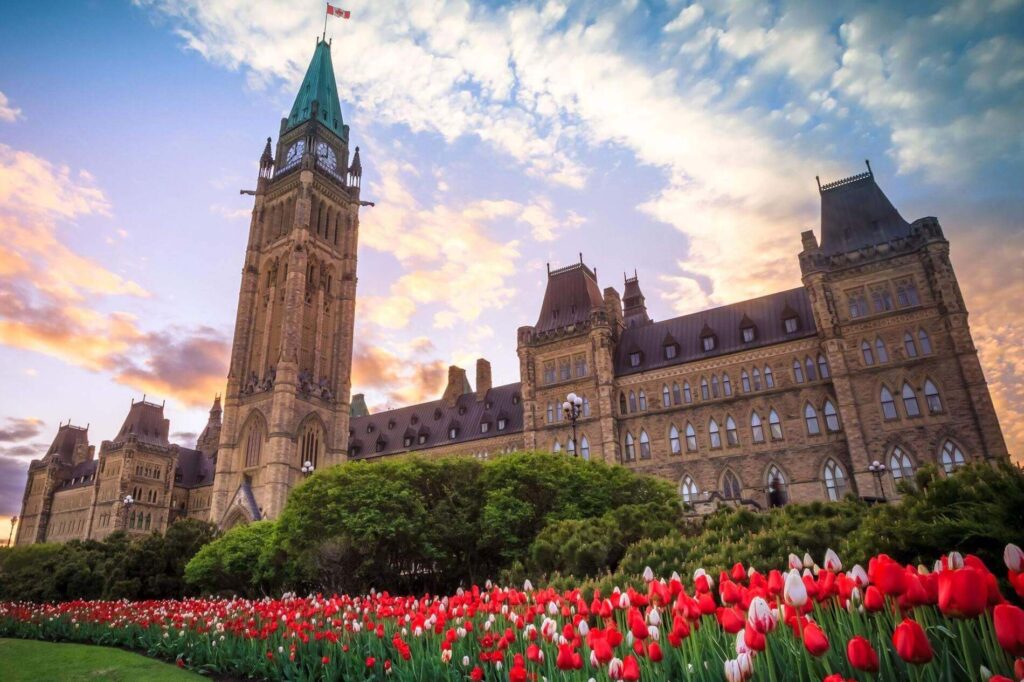
- TOP-10 cities for Airbnb in Ontario, Canada
- Launching a Successful Airbnb Venture in Ottawa: A Numbers-Based Guide
- Ottawa’s Airbnb Laws
- A Game of Numbers Shows Why Airbnb in Ottawa Is a Great Investment
- Airbnb Profitability in Ottawa: Facts & Figures Guide
Introduction
Ottawa, the capital city of Canada, sees an estimated 1.73 million tourists annually. With around 2,031 active Airbnb listings, this provides an exciting opportunity for homeowners and investors.
Legal Requirements and Regulations
Airbnb hosts in Ottawa must adhere to zoning bylaws, safety standards, and other local regulations. Failure to comply may result in fines ranging from $500 to $100,000.
Business Registration and Licensing
From obtaining necessary business licenses to registering with local authorities, here’s everything you need to know about the official prerequisites.
Income Tax Essentials for Airbnb Hosts
Taxation Framework in Ottawa
Airbnb hosts are subject to both federal and provincial income taxes. The federal tax rate ranges from 15% to 33%, while the provincial tax rate for Ontario is 5.05% to 13.16%.
Here’s a breakdown for individuals:
- Up to $49,020: 15%
- $49,020 to $ 98,040: 20.5%
- $98,040 to $ 151,978: 26%
- Over $151,978: 33%
The provincial tax rate is:
- Up to $45,142: 5.05%
- $45,142 to $90,287: 9.15%
- $90,287 to $150,000: 11.16%
- Over $150,000: 13.16%
Reporting Income and Filing Taxes
As of 2021, Airbnb automatically reports income to the CRA for hosts earning over $20,000 and conducting over 200 transactions annually.
Tax Deductions and Allowances
Deductions can include expenses like utilities, repairs, and advertising, which may reduce taxable income by a significant percentage.
GST/HST Obligations and Compliance
Registering and Charging GST/HST
Hosts earning over $30,000 in a calendar year must register for GST/HST. The current HST rate in Ontario is 13%.

Local Municipal Taxes and Bylaws
Municipal Accommodation Tax (MAT) in Ottawa
The Municipal Accommodation Tax (MAT) is a significant aspect of Ottawa’s tourism industry. Here’s a comprehensive breakdown of the details:
Implementation Date: The MAT was set into motion on January 1, 2018.
Inclusion on Guest Invoices: Starting from the implementation date, all guest invoices must include a specific line mentioning the “Municipal Accommodation Tax.”
Remittance Process: The Ottawa Gatineau Hotel Association (OGHA) requires remittances to be made via their designated process within 30 days following the month’s end.
Applicability of the Tax: The four percent (4%) MAT is applicable solely to the room cost portion of all guest invoices for overnight accommodation.
Interest on Late Remittances: Any delayed remittances will be subject to an interest rate of 1.25% per month, aligning with the City of Ottawa’s standard rate for late charges.
The transition from DMF: The MAT replaces the Destination Marketing Fee (DMF), supporting Ottawa Tourism’s continuous marketing, sales, and destination development efforts.
Obligations of Accommodation Providers: If you’re an accommodation provider in Ottawa, you’ll be legally required to collect and remit the 4% MAT on rooms sold for overnight stays. Other hospitality services, like food, internet access, and parking, are excluded from the MAT.
Scope of the Tax: MAT applies to all accommodations under 30 days, including hotels, motels, and online platforms, except those on the exemption list, like traditional Bed & Breakfast operators.
OGHA’s Role: The City of Ottawa has empowered OGHA to collect the tax and oversee the fund transition to Ottawa Tourism for the promotion and growth of the local tourism sector.
Registration and Compliance: To register for the collection and monthly payment of MAT, email [email protected] and provide the necessary details. There will be ongoing responsibilities concerning verified annual room revenue statements to ensure accurate tax collection.
The funds collected through MAT are funneled towards promoting Ottawa and the surrounding region and boosting product development and tourism growth. By understanding and adhering to MAT’s specifics, accommodation providers can actively contribute to Ottawa’s thriving tourism industry.
Managing Your Airbnb Business
Insurance and Liability
Standard homeowners’ insurance may not cover Airbnb hosting. Specialized insurance may cost anywhere between $600 to $2,000 annually.
Conclusion
The burgeoning Airbnb market in Ottawa presents attractive opportunities for hosts. Understanding the various tax obligations, including income tax, GST/HST, and MAT, along with compliance with local bylaws, ensures a lawful and profitable venture. This guide offers concrete numbers and facts, guiding you through the complexity of Tax on Airbnb income in Ottawa, Canada.
- The Definitive Guide on Victoria, Canada’s Airbnb Income Tax
- Crunching Numbers: A Complete Guide to Airbnb Income Tax in Edmonton, Canada
- Calgary, Canada: The Comprehensive Guide to Airbnb Income Taxes
- The Ultimate Handbook for the Taxation of Airbnb Income in Whistler
- The Comprehensive Handbook: Navigating Airbnb Income Tax in Montreal
- Your Essential Guide to Understanding Tax on Airbnb Revenue in Toronto, Canada